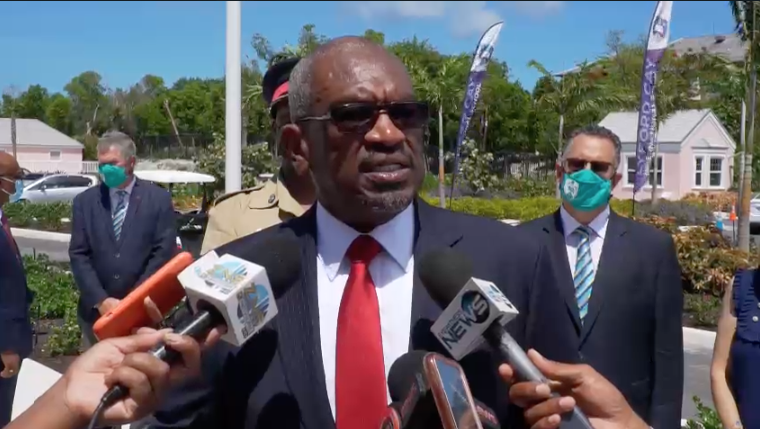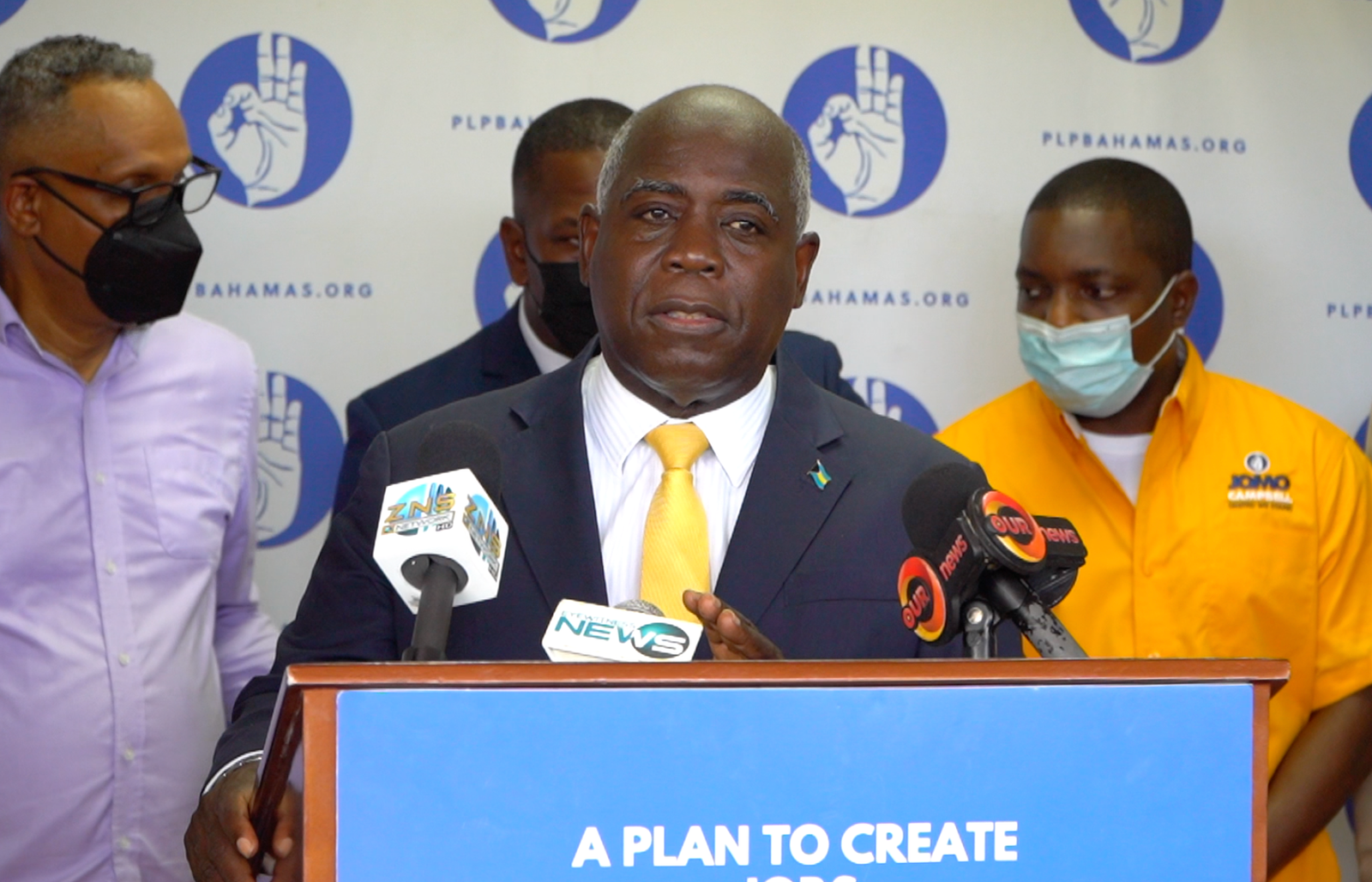PLP lost 2% support since 2017 General Election while FNM lost 27%
Respondents under age 45 more likely not to vote at all
NASSAU, BAHAMAS — A new poll shows the Progressive Liberal Party (PLP) edging out the governing Free National Movement (FNM), both of which remain the majority favorites among the electorate.
While 35 percent of respondents surveyed said they would vote for the PLP if the election was called at the time they took the survey, another 30 percent said they would vote FNM.
The online poll by Bahamian information and research company Intel Cay was conducted between November 2020 and May 2021 and included a sample size of 5,965.
 Queswell Ferguson, who heads the firm, said it could recognize the IP addresses of all respondents, ensuring they were Bahamian residents.
Queswell Ferguson, who heads the firm, said it could recognize the IP addresses of all respondents, ensuring they were Bahamian residents.
According to the poll, 12 percent of respondents were undecided about who they would elect, and 11 percent would opt not to vote.
Just eight percent of respondents said they would vote for the Democratic National Alliance (DNA) if the election was called; three percent opted for the Coalition of Independents (COI); and just one percent of respondents said they would elect “other”.

Intel Cay compared the results of the poll to the vote distribution in the 2017 General Election.
It reflected a 27 percent loss of support for the FNM, and a two percent loss of support for the PLP since the last general election.
The FNM garnered 91,137 votes or 57 percent in the last general election, compared to the PLP’s 59,164 or 37 percent.
While there appeared to be greater support for the FNM among respondents over age 45 than those younger than 45, both age groups preferred to vote for the PLP.
According to the data, respondents under the age of 45 were 13 percent more likely to vote for the PLP while those over 45 were only four percent more likely to.
Younger respondents, those under 45, were also more likely not to vote at all.

Among respondents in that age group, 32 percent selected the PLP; 25 percent opted for the FNM; 13 percent were undecided; 14 percent said they would not vote; 10 percent chose the DNA; four percent were for the COI; and two percent chose “other”.
There was less voter apathy and support for third parties among older respondents.

Among those over 45, a total of 42 percent said they would vote for the PLP; 38 percent said FNM; 11 percent were undecided; five percent said they would not vote; only two percent chose the DNA; one percent chose the COI; and another one percent chose “other”.
When looking at the respondents by geographical locations — New Providence, Grand Bahama and the Family Islands — the poll showed the FNM had more support than the PLP on Grand Bahama by a small margin, while the PLP’s support was greater on New Providence and the Family Islands.
Undecided voters and those who did not plan to vote were also greater on Grand Bahama.
When contacted, Ferguson told Eyewitness News: “We’re also able to filter results by different time periods, so during the period of this particular survey, there has been no point where the PLP has trailed the Free National Movement.
“There have been a few minor hills and valleys, but there has been nothing over any extended period of time that would make us feel as though the results we’re sharing aren’t conclusive.”
Ferguson said other metrics, such as government data on population and unemployment, are also factored into the poll to “help rake and weight the data”.

He added: “It’s not unweighted data that you’re looking at.”
Ferguson also revealed that polling on leadership approval showed respondents preferred Prime Minister Dr Hubert Minnis over Opposition Leader Philip Brave Davis.
While he did not provide specific percentages, the overall results concur with polling commissioned by the FNM using research firm Ragnar Research Partners.
More than 400 interviews between July 1 and 6, by telephone, asking about approval and disapproval of Minnis and Davis, showed 54 percent of respondents approve of Minnis while 37 percent disapprove of him; and 24 percent approve of Davis, while 47 percent disapproved of him.






